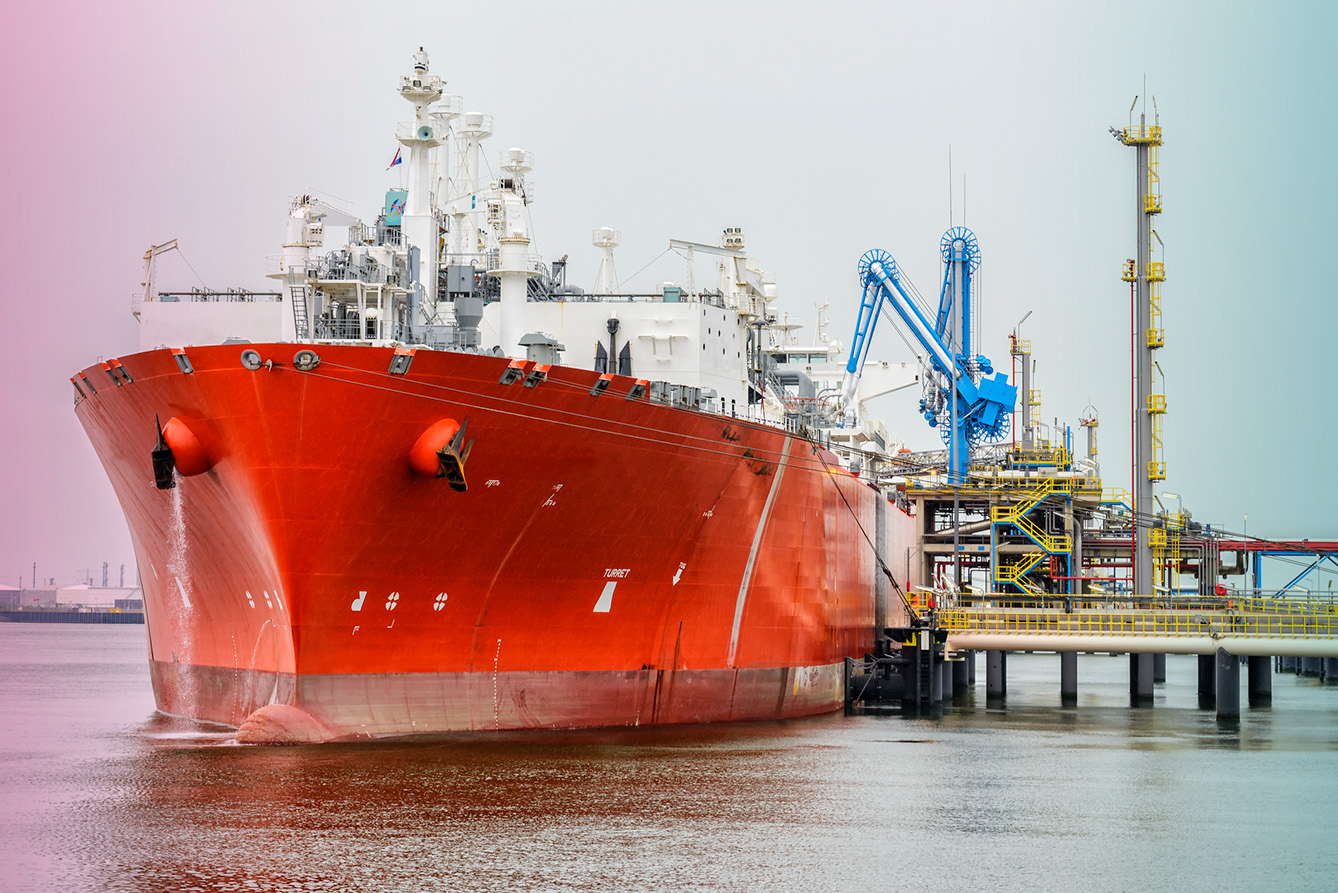Finland and Estonia have decided to work together to secure a special type of vessel that can receive natural gas arriving on tankers from distant suppliers. By teaming up, the countries want to share the costs and increase their chances of getting their hands on this type of vessel, which is in extremely high demand following Russia’s invasion of Ukraine.
Strategic energy planning
Russia’s war in Ukraine has sent shockwaves through the EU’s strategic energy planning. Almost overnight, it became clear that the Union would have to move away from Russian gas as soon as possible. Member states are now wrestling with the task of finding new suppliers and acquiring the infrastructure needed for large quantities of gas from alternative sources to reach their markets. Among the most sought-after solutions is the lease or purchase of Floating Storage Regasification Units (FSRU). The special ships, which often measure between 150 to 300 meters in length, receive Liquified Natural Gas (LNG) from other ships before converting it to regular natural gas and pumping it into a gas pipeline.
Finland and Estonia’s ambitions to acquire an FSRU became acute after an EU meeting in Versailles in early March, where the EU took its first steps to reach a collective agreement on significantly decreasing the imports of Russian gas. The member states agreed to meet again in May to finalize the REpowerEU plan, which will require EU states to completely stop importing Russian gas within five years.
Estonia has long been yearning to build its first LNG terminal. In 2018, its plan to build such a terminal at the Port of Paldiski was adopted as one of the Three Seas Initiative Priority Projects. Since then, progress had been slow, and it seemed like the project might only materialize in the distant future. However, Russia’s invasion of Ukraine changed the paradigm completely, causing Finland and Estonia to announce on April 7 that they will jointly acquire a floating FSRU terminal to be able to quit Russian gas by the end of the year.
Baltic cooperation
According to the plan, the two countries will lease the FSRU vessel together and construct one hauling quay in each country. In the case of Estonia, that quay will be built in Paldiski, while Inkoo will fulfill a corresponding role in Finland. Both locations were selected because of their proximity to their respective country’s national gas system transmission networks, which have been interlinked since the construction of the Baltic Connector in the Gulf of Finland’s seabed in 2019.
Once the nearly 200-meter-long FSRU vessel arrives, market demand will decide where it will initially moor before moving to the other side of the gulf in what will become a back-and-forth operation. The cost of renting the floating terminal will be shared according to how much gas each country uses. The process could be complicated by the increased demand for FSRU vessels and their very limited supply. Construction of such vessels frequently takes many years due to their size and complexity. Around 50 FSRU vessels are currently in operation worldwide, but fewer than ten are currently available or have leasing contracts expiring within the year.
Finland and Estonia are convinced that they will be able to sign a contract soon and have the FSRU arrive before the end of the year. Once the gas starts flowing, both states will enjoy a greater degree of energy security while also making the most of an FSRU vessel able to serve two states at once. As Russia is gradually pushed out of the European gas market, Finland and Estonia once again prove that European cooperation serves as the best insurance against today’s increasingly volatile times.







